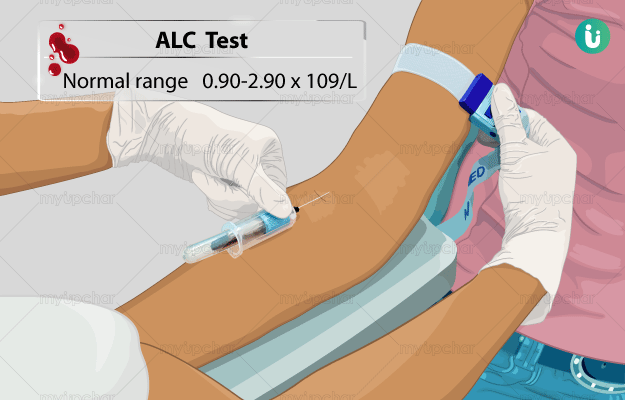What is ALC (Absolute Lymphocyte Count) test?
Lymphocytes are a type of white blood cells that are formed in the bone marrow. These cells are an integral part of the immune system and work to protect the body from infectious agents, such as bacteria, viruses, and cancer cells. There are two main types of lymphocytes:
- B lymphocytes - make antibodies which fight foreign substances
- T lymphocytes - help the body fight cancer cells. T lymphocytes are further divided into 3 types:
- Cytotoxic T cells, also known as the killer T cells - are responsible for destroying cancer cells and foreign cells present in the body.
- Helper T cells - facilitate the immune response of the B cells and other T cells.
- Regulatory T cells - help in controlling the response of the immune system in order to prevent autoimmune conditions and prevent the immune system from attacking the useful bacteria present in our digestive system.
An ALC test helps determine the level of lymphocytes present in blood.
































